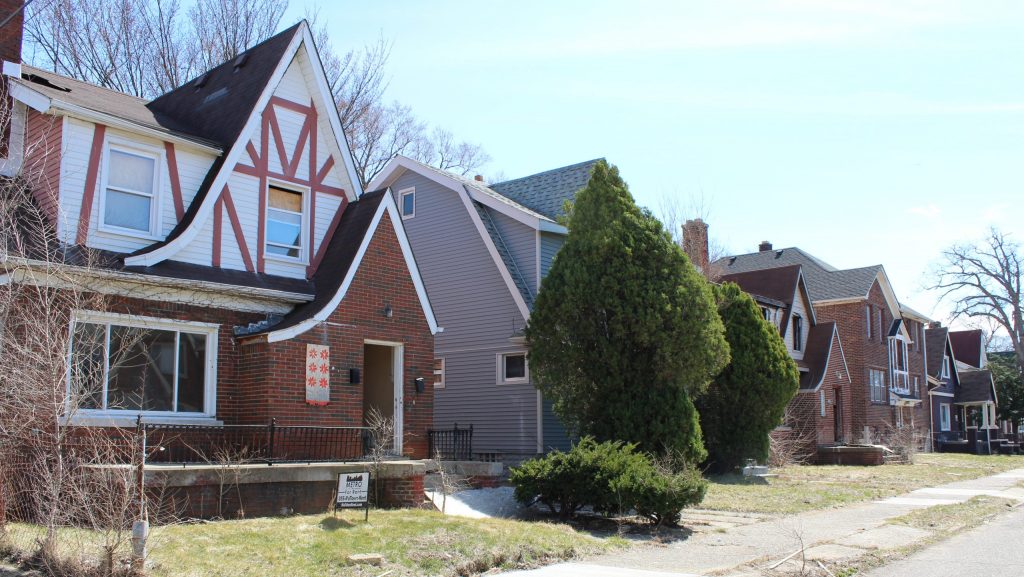The Metro: Detroit company using IRA funds to help low-income households be more energy efficient
The Metro May 14, 2024Starting in October, up to $14,000 in Inflation Reduction Act funds, per project, will be available this year for low-income families to improve the energy efficiency of their home.

The announcement of Michigan Central Station’s reopening on June 6 has many excited about what the location will mean for the mobility innovation district located in Corktown.
But while tenants will have to wait another month before restaurants, retailers and others take occupancy, the idea of Detroit — and Michigan generally — as an innovation hub, has the eyes and ears of many hoping to jumpstart the local economy.
One reason the state can do this is due to the Inflation Reduction Act. The state hopes to use these funds to create good-paying jobs and increase domestic manufacturing, while also lowering energy costs and reducing air pollution.
Pearl Edison is a Detroit business, which opened this year, that aims to accelerate clean electrification, starting with heating and cooling. They recently completed a Home Energy Rebate pilot program for low-income homeowners using IRA funds.
The company’s co-founders Evan Anderson and Jake Yurek joined The Metro on Tuesday to talk about their efforts transitioning Michigan businesses and residents to clean energy.
Subscribe to The Metro on Apple Podcasts, Spotify, NPR.org or wherever you get your podcasts.
Yurek says Michigan Central was one reason he moved from Colorado, but they’re also excited to think of creative ways to utilize IRA funds.
“And I think as we think about the IRA funds — and what they can do for the broader ecosystem — is lower utility bills for Detroiters and also improve the profitability of Detroit-based contracting businesses,” Yurek said. “We want to make sure that the best contractors get more work and so these funds are going to help them do that.”
For lower income people, investing in energy efficiency is a tricky predicament, Anderson says. Starting in October, up to $14,000 in IRA funds, per project, will be available for low-income families to put toward making the home more energy efficient.
“You can’t afford to invest in efficiency, so your bills stay high, and you’re left with less money after paying those important expenses. The Inflation Reduction Act is a pretty unprecedented investment in making these systems more affordable for people,” Anderson said.
Use the media player above to hear the full interview with Yurek and Anderson.
More headlines from The Metro on May 14:
- The city of Hamtramck swore in its first Yemeni and Muslim police chief, Jamiel Altaheri, on Monday. Alteheri joined the show to talk about how he plans to run the department.
- Say Burgin is a history professor at Dickinson College, and the author of the new book, “Organizing Your Own: The White Fight for Black Power in Detroit.” In it, she argues that Black power wasn’t excluding white people, but encouraging them to organize their own communities against racism. Burgin joined the show to discuss the book.
- A class action lawsuit filed in 1968 against Hamtramck for displacing a Black neighborhood for the construction of the I-75 freeway finally came to a close last month. The settlement called for the city to build 200 housing units for the displaced families, in addition to senior housing, but because of Hamtramck’s financial troubles, home construction took years to start and wasn’t completed until last December. WDET’s Bre’Anna Tinsley spoke with Dwydell Garrett, whose mother was a lead plaintiff in the lawsuit.
- This week on WDET’s state politics podcast, MichMash, host Cheyna Roth and Gongwer News Service’s Alethia Kasben discuss what might go in the state budget and the politics that need to be negotiated to pass it. The budget is likely to be over $80 billion, and could include things like housing initiatives and a road funding tax.
Listen to The Metro weekdays from 11 a.m. to noon ET on 101.9 FM and streaming on-demand.
Trusted, accurate, up-to-date.
WDET strives to make our journalism accessible to everyone. As a public media institution, we maintain our journalistic integrity through independent support from readers like you. If you value WDET as your source of news, music and conversation, please make a gift today.
